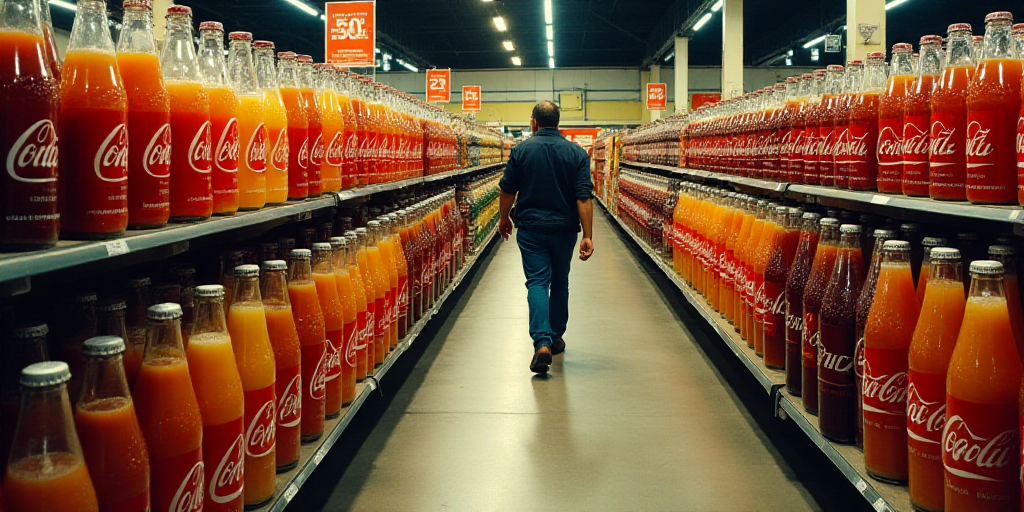Expert Insights on Reducing Sugary Drink Consumption
Judith Senyacen Méndez, the Deputy Director of Research and Health & Public Finance Specialist at the Center for Economic and Budgetary Research (CIEP), explained that a 20% increase in the price of sugary drinks could be one of the most effective strategies to reduce their consumption by up to 19% and prevent related diseases.
Impact on Vulnerable Groups
Senyacen Méndez highlighted that the price increase in beverages like sodios has a more significant effect on young people and those with lower incomes, as they are more sensitive to these adjustments. Consequently, their consumption decreases more compared to the rest of the population.
WHO Recommendation
The 20% price hike on sugary drinks is a recommendation by the World Health Organization (WHO) since 2016, according to Senyacen Méndez.
Potential Benefits and Implications
She emphasized that there is empirical evidence showing that price increases effectively reduce the consumption of sugary drinks and also help increase tax revenue. Senyacen Méndez suggested that the collected taxes should be allocated to specific health prevention and care programs.
Fundar’s Studies on the Impact of Price Increases
Iván Bremeunea, Coordinator of the Justice Fiscal Program at Fundar, mentioned that their organization’s studies demonstrated that a 20% price increase could reduce obesity cases by up to 970,000 and generate an annual revenue exceeding 104 billion pesos—equivalent to 60% of the IMSS-Bienestar budget.
Effectiveness of Current Tax
Bremeunea noted that the existing tax on sugary drinks no longer has a significant impact, as it represents between 5.6% and 5.9% of the product’s price. He suggested increasing it to 20%.
Controversy Surrounding the Measures
Mexico’s Sugary Drink Tax Implementation
In 2014, Mexico implemented the Special Production and Services Tax (IEPS) on sugary drinks—initially 1 peso per liter, now 1.64 pesos—as part of a public policy to reduce consumption and combat obesity.
Debate on Tax Efficacy
However, the effectiveness of this tax has sparked controversy. Studies by Colmex, ITAM, and the University of Nuevo León concluded a few years after the tax’s implementation that its impact had been minimal.
Sales Volume and Consumption Data
The Colmex study, using data from the National Institute of Statistics and Geography (Inegi), reported that the annual volume of soft drink sales decreased by 1.9% in 2014 compared to the previous year, though this decline began in 2012.
Conversely, the National Institute of Public Health (INSP) reported an average 6% decrease in sugary drink consumption due to the tax implementation.
Fundar’s Proposed Solutions
Bremeunea emphasized that to address this issue, Fundar has submitted proposals to authorities suggesting an increase in the price of flavored beverages to 7 pesos per liter, including those with low or no sugar, except for water.
Proposed Tax Adjustments
Among the proposals are subjecting this industry to a special tax regime that limits marketing and advertising deductions, restricts access to fiscal benefits, establishes greater transparency measures, and imposes a higher tax burden.
Key Questions and Answers
- What is the proposed price increase for sugary drinks? Experts, including Judith Senyacen Méndez and Iván Bremeunea, recommend a 20% increase in the price of sugary drinks.
- Who would be most affected by the price hike? Young people and those with lower incomes are more sensitive to price adjustments in sugary drinks, leading to a more significant decrease in their consumption.
- What are the potential benefits of this price increase? The measure could reduce sugary drink consumption by up to 19%, prevent related diseases, and generate tax revenue for health programs.
- How effective has Mexico’s existing sugary drink tax been? The current tax on sugary drinks no longer has a significant impact, according to Bremeunea. He suggests increasing it to 20% for better results.
- What proposals has Fundar made regarding sugary drink taxation? Fundar proposes increasing the price of flavored beverages to 7 pesos per liter, subjecting the industry to a special tax regime with limited marketing deductions, restricted fiscal benefits access, enhanced transparency, and a higher tax burden.






